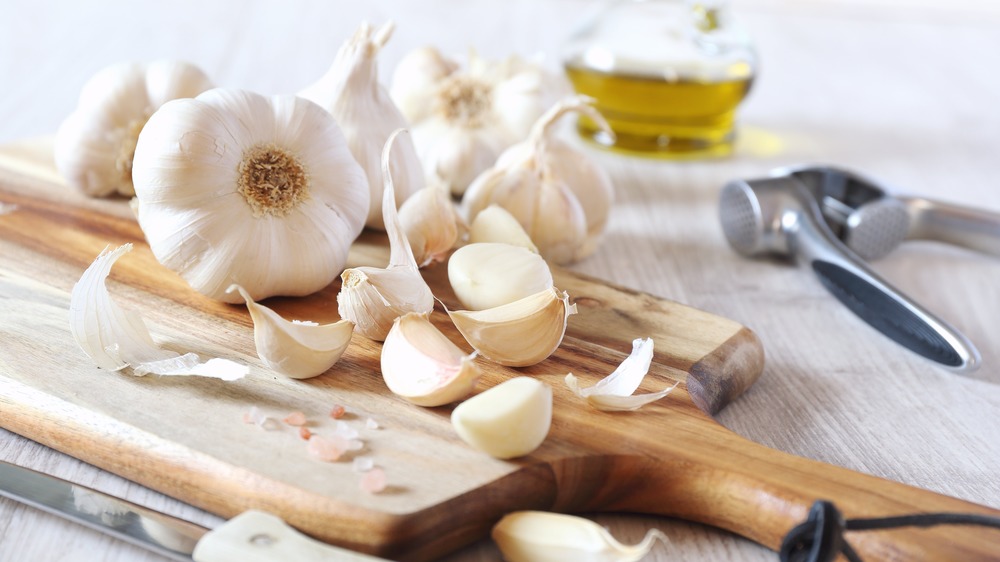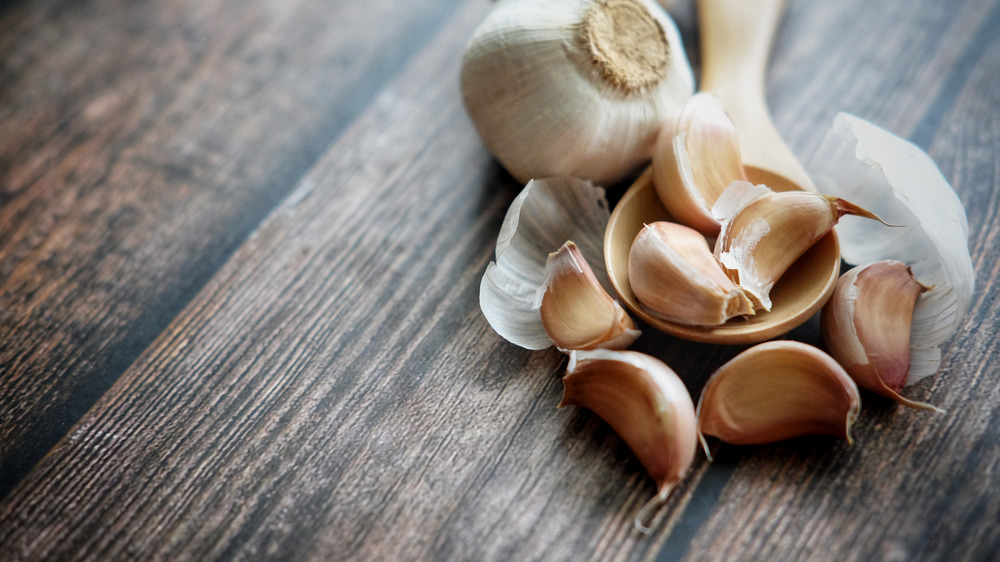The Real Reason You Should Blanch Your Garlic
While garlic is a staple in many kitchens (via Kitchn), sometimes you don't want quite such a powerful kick of raw garlic flavor in your dish. If you're looking for a slightly more mellow taste and aroma, blanching is the solution.
What exactly is blanching? Simply put, as The Spruce Eats explains, it involves food being briefly immersed in a hot liquid, and is often used for fruits and vegetables. It plays a unique role in taming garlic's flavor. The pungency within a clove of garlic comes from a natural defense mechanism that the allium has, in which an enzyme named alliinase reacts with a molecule called alliin (via Serious Eats). The outlet says that together the duo produce allicin, which is what's responsible for that powerful garlic hit.
Cook's Illustrated tested out a few different methods for blanching garlic cloves, including immersing the cloves in milk and in water, toasting them with the skins on in a dry skillet, and microwaving them. While the latter two don't involve any liquid, the point of the heat with this ingredient is simply to raise the garlic clove's temperature to 140 degrees Fahrenheit or above — that's the magic number when it comes to deactivating the alliinase (via Cook's Illustrated).
How to reduce garlic's pungency while keeping the flavor
After testing this, Cook's Illustrated found that simply zapping the cloves in a bowl in the microwave for two to three minutes was the most easy and effective way to tame the flavor.
If you really don't want to blanch your garlic, but still need to tame the pungency, acid might also be a handy solution. According to Serious Eats, just like the alliinase in garlic is deactivated by heating it above 140 degrees Fahrenheit, it is also inhibited when in a highly acidic environment. That's why you always need a lemon kicking around your kitchen, just in case. As Southern Living proclaims, the staple citrus fruit can cut through the richness of a dish, add a necessary dose of brightness, as well as help tame that garlic if you were a bit heavy handed while crafting your salad dressing.
The way you prepare garlic also impacts the amount of flavor and aroma the cloves will release. As Serious Eats explains, the more damage that's done to the cells within the garlic clove, the more pungent it will be. So, a full clove of garlic tossed in your dish will be far less overwhelming than the same amount of microplane-grated garlic.

